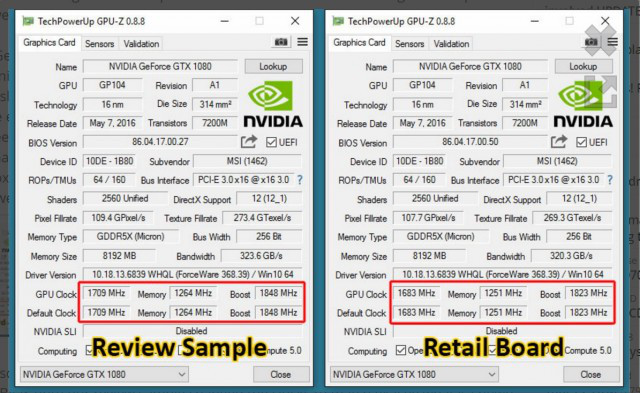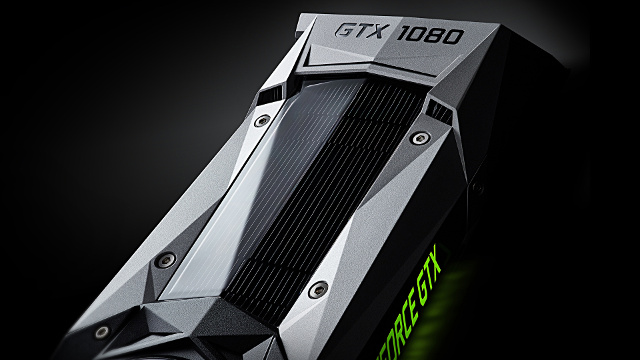NVIDIA's new line of graphics cards have quickly become a point of contention in the PC gaming and hardware enthusiast communities. At first NVIDIA found itself in the center of discussion on social media and forums following the debut of its Founder's Edition cards, which were glorified reference cards released at a higher price point along with an earlier release date than custom cooler designs.
Although it would receive a lot of flack for its 10-series launch, discussion has quickly transitioned away from NVIDIA and instead to ASUS and MSI.
Following the release of a variety of reviews for the GTX 1080 and 1070 cards, it was revealed by TechPowerUp that NVIDIA 10-series products from ASUS and MSI were sent to reviewers with overclocks already enabled. Although these cards could be set to default settings like their retail equivalents, the review samples were tampered with by defaulting the software to what's called "OC Mode", allowing the cards to perform with slightly higher clock speeds. The difference was minimal, pushing the GPU clock from 1683 MHz to 1709 MHz. Nonetheless, it affected the output of benchmarks, leading to inaccurate information being provided to consumers.
ASUS in particular later released an official statement which stated that the purpose of defaulting the review units to OC Mode was to "save media time and effort". They made it known that there were "no differences between the samples sent out to media and the retail channels in terms of hardware and performance".

No matter what MSI and ASUS said it didn't matter. The dissatisfaction of consumers has been rampant and unwavering, resulting in multi-page discussions on various forums. Meanwhile, other manufacturers producing custom cooler GTX 1080 and GTX 1070s have been sitting comfortably watching the chaos unfold, including EVGA.
In response, EVGA has published a marketing page on its official website titled "With EVGA, What you See Is What You Get". The page states the following before linking to several positive reviews from notable members of the press:
This page is currently being marketed heavily by EVGA as it tries to push its line-up of cards that include the remarkable GTX 1080 FTW Gaming ACX 3.0 among other impressive products.
EVGA has been leading sales among the pack of released GTX 1080 and 1070 cards, led in-part by its commonly praised industry leading warranty and Step-Up program. Following the positive press from not being involved in this controversial series of events it's likely that it'll see a nice boost in sales, which at this point might not matter much considering NVIDIA's 10-series is selling out every time product becomes available.
Both myself and fellow staff member JamalR purchased GTX 1080's last month and have had a lot of good things to say about NVIDIA's new product line. You can read more here.











